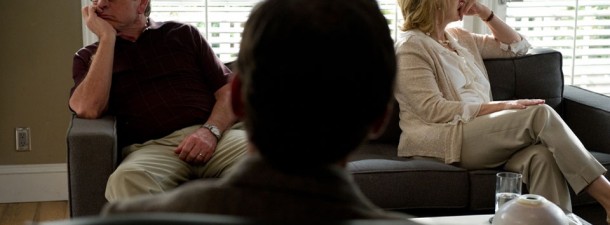Movie Review: ‘Hope Springs’
October 17, 2012
It’s considered taboo to talk about rekindling your romance, particularly when it brings up sex, even more so among older couples. This new comedy isn’t shy about taking this topic head on.
I should be honest. I took this film at an arm’s length because I believe it is meant for people my parents age and older, not me. True, the main message of the film can be related to anyone in a relationship that has hit a difficult patch, but otherwise, it is a margin comedy about the older couple, not the mainstream of the younger couple we are more accustomed to, which is what is refreshing about this film. There ought to be more about keeping love, rather than finding it all the time. We focus more on finding love, but not in how we tend, preserve and strengthen it, which is really more important in the long run, and thus makes the ideas in this film more relatable and real. Unfortunately, it falls a bit short due to its character development.
Kay (Meryl Streep) and Arnold (Tommy Lee Jones) are the middle-aged couple that have found themselves acting like roommates as opposed to a married couple. They are sleeping in separate bedrooms and the closest they get to intimacy is Arnold’s stereotypical family sitcom kiss on the check to Kay before he heads out the door and off to work. It’s cute at first, until we understand that’s all the romance Arnold seems to have in him, which makes Kay eager to spark up their marriage again, leading her to pick up a book by Dr. Feld (Steve Carell) and eventually sign up for his week-long marriage counseling retreat. Arnold protests the idea, thinking Kay is off her rocker, but he follows along. Not very willingly of course; he continually finds something to complain about, and it doesn’t end once they start their time with Dr. Feld, who begins to help them rediscover each other.
The trouble with this film is that it delves mainly into Streep’s character, so much so, that we see a side of Streep that we never thought she would delve into: annoying. At first she appears to be unhappy but spirited, an identifiable character that we can enjoy watching, but as the film progresses we see her become this teary-eyed pity party with little self-worth. Every so often she manages to be plucky; however that comes and goes so much it begins to be painful to watch because we find ourselves annoyed with her. The sympathy begins to run dry because there are only so many times we can be charmed with Kay’s pathetic and naïve approaches. The solution to this problem would have been to give Jones a more central role, instead of just pretending he has one, because it is obvious that this is a story about Kay, not about Kay and Arnold. Arnold is made out to be the bad guy instead, allowing the story to focus on Kay and only give a few insights to Arnold’s character, none of which tell us enough about his internal dilemma and why he’s so unhappy. We get glimpses that allow us to fill in the blanks, but it is not enough for us to develop a connection with Arnold, unlike with Kay where we develop a connection and later the urge to sever it.
This leads me to the acting; I don’t think this is Streep’s best film, unless the goal was to portray a working housewife with a distant husband as a needy woman with low self-esteem. Jones plays the routine-driven and oblivious husband with no problem, almost as if he channeled the grumpy Carl from “Up” after Ellie’s death. Whether it is the writing or his acting that makes it hard for us to see past this facade is up for debate. Carell doesn’t have to do too much here, but comes across as comforting and almost eerily serene about everything. Whoever dressed him and his office however, has my sincere gratitude, since that beautiful Eames chair he sits in during each scene in addition to his attire reminds me of one of my professors. It goes without saying how much fun that is.
The editing and music do the job. The camera angles are done with taste when Streep and Jones get intimate, but still make us feel as uncomfortable as they do with each other.
In the end, I applaud this film for attempting to tackle a tricky topic, one that many could relate to and would love to see, but I think it failed since it does not allow us to see her husband’s side of the story fully. Nor does the ending really settle what is set up earlier. For that reason, I would only recommend renting it, not buying it.







